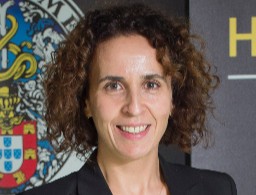A biochemist who worked as a postdoc at The University of Texas MD Anderson Cancer Center in Houston has sued the institution to dispute findings of research misconduct.
The researcher, Sonia Melo, now at the University of Porto in Portugal, alleges MD Anderson did not follow its own policies while conducting its investigation. Melo lost a prestigious grant in 2016 after one of her papers was retracted for containing duplicated images.
MD Anderson’s investigation concerned a paper published in Cancer Cell in 2014. On August 7 the journal marked it with a “temporary Expression of Concern” detailing duplicated and relabeled data found in the probe, which was completed in May 2024. The article has been cited 1,462 times, according to Clarivate’s Web of Science.
The investigation “concluded that there are no authentic, original, and uncontested data to verify the results presented in the publication and recommended retraction of the article,” the notice states.
Melo “expressly denies the findings of research misconduct made by MD Anderson,” according to her lawsuit, filed in Harris County, Texas. She asked the court to declare MD Anderson had infringed her due process rights, and void the institution’s final decision of research misconduct.
“I can only reaffirm that I stand firmly behind the claims outlined in the Petition,” Melo told Retraction Watch. “As the matter is subject to ongoing litigation, I am not in a position to provide additional comments at this time.”
Raghu Kalluri, the corresponding author of the paper and a professor of cancer biology at MD Anderson, told us he had suggested the journal place the temporary expression of concern on the paper until the dispute is resolved.
“The data was found to substantiate every figure in the paper that was in question,” Kalluri said. “The committee just did not like the exact sequence in which the data was recorded.”
He has requested a correction for some “genuine errors” that “don’t impact the data at all,” he said.
The expression of concern states some of the paper’s 14 authors disagree with the investigation’s findings, but does not specify which ones. The authors maintain MD Anderson investigated the article in 2016 and did not recommend retracting it, and “all original data supporting the paper’s conclusions” were provided to the investigation committee, according to the notice.
The editors of Cancer Cell are reviewing the concerns and will update the scientific community with their conclusion, the notice states. A spokesperson for Elsevier, the publisher of Cancer Cell, said the company could not comment while the investigation was ongoing.
Kalluri declined to share the investigation report and other documents with us. We filed a request for the report under Texas’ public records law, but have not received the document.
Kalluri served as chair of the Department of Cancer Biology from 2012 until June 1, according to a spokesperson for MD Anderson. He told us the change was “due to family reasons and personal reasons,” and because he decided to devote more time to research.
One of Kalluri’s papers, in the Journal of Clinical Investigation, was retracted in January 2020 after the U.S. Office of Research Integrity found the first author, Sudhakar Yakkanti, fabricated data. ORI also recommended the retraction or correction of a paper in Proceedings of the National Academy of Sciences on which Kalluri and Yakkanti collaborated which has yet to be marked.
Within a year of the publication of the Cancer Cell paper, anonymous users of PubPeer began posting illustrations of figures in the paper that appeared identical to other figures depicting different experiments. The findings in the temporary expression of concern match those identified on PubPeer.
MD Anderson conducted an internal inquiry into the allegations on PubPeer in 2016 and “concluded that no further action was warranted,” Melo alleges in her lawsuit.
Also in 2016, the European Molecular Biology Organization revoked an early career grant to Melo of up to 250,000 euros, following the retraction of a paper in Nature Genetics on which she was the first author. At least four of Melo’s other papers have received corrections — one of them twice. The most recent correction, of a 2010 paper also published in Cancer Cell, appeared August 11 and replaced a supplementary figure.
According to Melo’s lawsuit, in January 2019 MD Anderson began looking into allegations regarding the Cancer Cell paper and three patents she co-owns, one of which is mentioned in the expression of concern. She alleges the institution did not notify her of the inquiry or subsequent investigation until February 2023, in violation of its policies. She also alleges the investigation took longer than allowed for in the institution’s policy. She received a draft of the investigation report on April 23, 2024, and submitted a 30-page response disputing the findings, she alleges.
Mark Barnes, an attorney at the Boston firm Ropes & Gray who was serving as MD Anderson’s acting Research Integrity Officer, sent the institution’s final report to Melo in an email dated May 10, 2024. Melo attached the email, but not the report, to her lawsuit.
Peter Pisters, president of MD Anderson, accepted the committee’s findings and recommendations, Barnes wrote to Melo. The institution asked Melo to pursue retraction of the Cancer Cell paper within two weeks, and said it would do so if she did not.
MD Anderson also “indefinitely” prohibited Melo from any appointment or employment at the institution, from performing any research there or collaborating with any MD Anderson researchers, and from receiving research-related funding from the institution, Barnes’ email stated. Barnes declined to comment for this story.
“The University of Texas MD Anderson Cancer Center is committed to the highest standards of scientific integrity and works to uphold these standards through established processes,” a spokesperson told us. “The institution does not comment on pending litigation.”
Melo’s lawyers filed a motion for default judgment against MD Anderson on August 18, as the institution had not submitted a response to her lawsuit in court.
The day we asked MD Anderson for comment on the lawsuit, August 21, the institution filed two responses. “Defendant recently learned of the Motion for Default Judgment and immediately filed an answer,” the Texas attorney general’s office wrote in the response asking the court to deny the motion. In its answer to Melo’s petition, the attorney general’s office wrote MD Anderson denied “all the allegations and claims” and asserted it was immune from the suit and liability as a sovereign entity.
Like Retraction Watch? You can make a tax-deductible contribution to support our work, follow us on X or Bluesky, like us on Facebook, follow us on LinkedIn, add us to your RSS reader, or subscribe to our daily digest. If you find a retraction that’s not in our database, you can let us know here. For comments or feedback, email us at [email protected].


Melo will lose this case.
More papers will come under scrutiny. Melo’s lawyers are meant to give her their estimate of the strength of her case against MD Anderson.
“She alleges the institution did not notify her of the inquiry or subsequent investigation until February 2023, in violation of its policies. She also alleges the investigation took longer than allowed for in the institution’s policy. ”
Most of it will likely depend on the problematic data, and who was responsible for the problematic data. An investigation may take longer because there was more evidence to go through, more people needed to be interviewed, some people delayed in their responses. Things which may be outside the control of MD Anderson.
Let’s not forget about a predilection for plagiarism. https://retractionwatch.com/2022/01/27/the-authors-plagiarised-a-large-amount-of-text-butretractions-should-not-be-used-as-a-tool-to-punish-authors%EF%BF%BC/
“ Melo attached the email, but not the report, to her lawsuit.” Reminds me of the Gino strategy. Make a big noise about process not following the handbook, pay no attention to the underlying fraud, er, uh, mistakes in assembling images that have no bearing on the conclusions of the articles.
Many judges can tell the difference. The idea of what is of utmost importance should come through.
What is the result?
https://jpwebsite.harriscountytx.gov/courts/CaseInquiry.do;jsessionid=0A74CC17A658327D2CC16936D8F1E03E
(Case number 202525681)